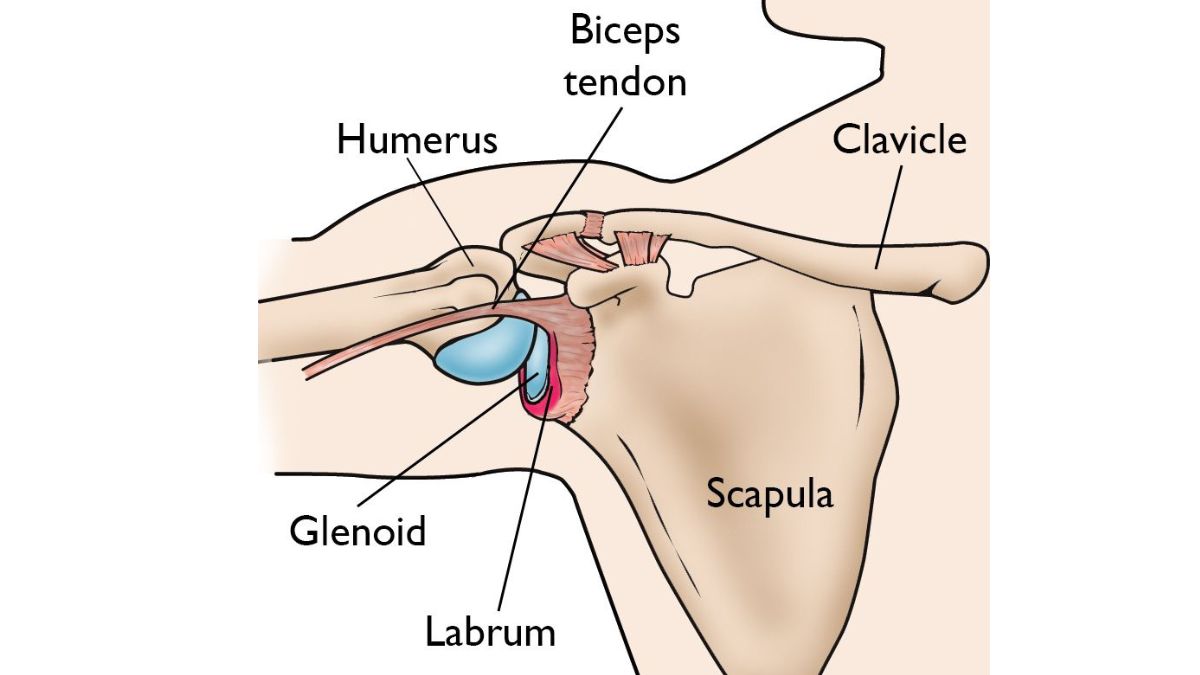HEALTH
Top Benefits of Using Diagnostic Health Services for Preventive Care

Getting regular checkups helps people stay healthy. Medical testing spots problems before they become serious. Today’s diagnostic health services give doctors a full picture of someone’s health through many different tests. These services have changed how doctors find and treat health problems, making prevention easier than ever before.
How Medical Testing Works Today
Going to health diagnostic laboratories means more than just basic blood work. Modern testing equipment can find tiny changes in the body that might mean trouble later. Testing methods keep getting better, which means more accurate results for patients. Medical labs now use computers and advanced tools to check samples quickly and accurately.
Finding Problems Early
Regular visits to health diagnostics centers let doctors watch for changes. Think of it like taking care of a car – fixing small problems prevents bigger breakdowns. Many health problems start silently, without any obvious signs. When doctors catch these problems early, treatment often works better and costs less.
These centers track health over months and years. They store test results safely and compare them over time. This careful watching helps spot changes that might otherwise go unnoticed until they cause bigger problems.
Why Regular Testing Helps
Looking at Everything
When someone goes for testing, diagnostic health services check many things at once. They look at blood counts, organ health, and other body systems. This thorough checking means fewer surprises later. The tests show how different parts of the body work together and whether anything needs attention.
Blood tests can show problems with sugar levels, cholesterol, and organ function. Imaging tests look inside the body without surgery. Together, these tests paint a clear picture of overall health.
Saving Money Over Time
Yes, tests cost money. But treating a small problem costs way less than dealing with a big one. Most insurance companies know this, so they help pay for preventive testing. Regular health checks often prevent expensive hospital stays and complicated treatments later.
Many people worry about medical costs. But prevention through regular testing often saves money in the long run. Insurance companies understand this math – that’s why they often cover preventive tests completely.
Tests Just for You
Everyone’s body works differently. Health diagnostic laboratories pick tests based on age, family background, and daily habits. This means you get tests that make sense for your situation. The testing plan changes as people age or their health needs change.
Some people need more frequent testing because of their family history. Others might need special tests because of their job or where they live. Health diagnostics centers adjust their testing plans to fit each person’s needs.
Common Health Tests
Watching Heart Health
Heart problems can sneak up quietly. Regular checks at diagnostic health services catch warning signs early. Basic heart tests show if anything needs attention before it becomes serious. These tests look at blood pressure, heart rhythms, and how well the heart works during exercise.
Finding Hidden Problems
Many illnesses get better with early treatment. Health diagnostics centers run these essential tests:
- Basic health measurements like blood pressure, heart rate, and breathing
- Detailed blood work checking for various conditions
- Body scans showing internal organs
- Special tests based on age and risk factors
Checking Body Systems
Regular testing shows how different parts of the body work together. This helps catch problems with hormones, digestion, and other body functions. The tests check liver health, kidney function, and how well the body processes nutrients.
Smart Testing Habits
When to Test
Some health checks need yearly visits. Others might need more or less time between tests. Health diagnostic laboratories help figure out the right schedule. The timing depends on age, health history, and current health status.
Young, healthy people might need fewer tests. Older adults or those with health concerns might need more frequent checks. The schedule changes based on test results and health changes.
What Tests Mean
Test results help most when people understand them. Many diagnostic health services now explain things clearly, without confusing medical talk. They tell people what the numbers mean and what to do next.
Good health diagnostics places take time to answer questions. They explain why certain tests matter and what the results suggest about overall health.
Tracking Changes
Keeping past test results helps show patterns. Most health diagnostics places now store records on computers, making them easy to find later. This tracking helps spot trends that might show developing health issues.
Digital records make it easy to share information between doctors. This helps everyone work together for better patient care.
New Testing Options
Better Equipment
Health diagnostic laboratories keep getting new tools. This means more accurate testing and faster results for patients. New machines can find problems earlier and with more detail than ever before.
Some tests that once took weeks now give results in days or hours. This quick turnaround helps doctors make faster decisions about treatment.
Easy Access
Many diagnostic health services now work at times that fit busy schedules. Some even bring testing to homes or workplaces. Mobile testing units make it easier for people in remote areas to get regular checks.
Working Together
Health diagnostics centers talk directly with regular doctors. This teamwork means better care for patients. When all healthcare providers share information, they make better decisions about patient care.
Taking Control of Health
Regular testing gives people real facts about their health. This knowledge helps them make better choices about taking care of themselves. People who know their health status often make smarter lifestyle choices.
Personal Health Choices
Results from health diagnostic laboratory show what’s working and what needs change. This helps people decide about food, exercise, and daily habits. Clear test results often motivate people to make healthier choices.
Doctor Teamwork
Doctors use test results to suggest practical changes. These suggestions fit real life, not just textbook advice. When doctors and patients work together using test results, they often find better ways to improve health.
Picking Testing Places
Good Quality
The best health diagnostics facilities keep their equipment up to date. They make sure their workers know the latest testing methods. Quality centers follow strict rules about handling samples and running tests.
Regular inspections and certifications help maintain high standards. Good labs take pride in accurate results and clear communication.
Understanding Costs
Most health plans help pay for diagnostic health services. Knowing what insurance covers helps avoid surprise bills. Many centers offer payment plans or sliding scale fees for people without insurance.
Looking Forward
Testing technology keeps improving. This means diagnostic services catch problems earlier and more accurately than before. New discoveries lead to better ways of finding and preventing health problems.
New Possibilities
Health diagnostic laboratories now offer tests that didn’t exist years ago. These new tests give more detailed health information. Science keeps finding new ways to spot health problems before they cause symptoms.
Making Testing Better
Many diagnostic health services now make testing easier for patients. This includes shorter wait times and clearer explanations of results. Better customer service helps more people get regular testing.
Conclusion
Using diagnostic health services helps people stay healthy longer. Regular testing finds problems early, when they’re easier to fix. Working with good health diagnostic laboratories means better health care overall.
As testing gets better, health diagnostics will become even more helpful. Getting regular checkups through diagnostic testing helps people live healthier lives. This common-sense approach to health care works for all kinds of people.
Prevention through regular testing makes more sense than waiting for problems to appear. Smart use of diagnostic health services leads to better health outcomes and often saves money over time. As medical science advances, these services will play an even bigger role in keeping people healthy.
HEALTH
What Is a SLAP Tear? Understanding This Common Shoulder Injury

If you’ve been experiencing shoulder pain, clicking, or a loss of strength—especially during overhead movements—you may be dealing with more than just a strain. One possible culprit is a SLAP tear, a specific type of injury to the shoulder joint that can affect everyone from athletes to weekend warriors.
What Does “SLAP Tear” Mean?
SLAP stands for Superior Labrum Anterior and Posterior. In simpler terms, it’s a tear in the top part of the labrum—the ring of cartilage that surrounds the socket of your shoulder joint. This cartilage helps stabilize your shoulder and keep the ball of your upper arm bone in place. When torn, the result can be instability, discomfort, and reduced mobility.
How Does a SLAP Tear Happen?
SLAP tears can result from either acute trauma or repetitive motion. Some of the most common causes include:
- Falling on an outstretched arm
- Lifting heavy objects or weights with poor form
- Repetitive overhead movements (common in baseball, swimming, tennis, etc.)
- Sudden pulling motions (like grabbing something while falling)
In some cases, SLAP tears can also be part of the natural wear-and-tear process, especially in people over 40.
Common Symptoms of a SLAP Tear
Not all SLAP tears feel the same, but here are some symptoms to watch for:
- Deep shoulder pain, especially during overhead activity
- A clicking or popping sensation
- Weakness or fatigue in the shoulder
- Limited range of motion
- A feeling that your shoulder is going to “slip out”
These symptoms often mimic other shoulder conditions, which is why getting an accurate diagnosis is so important.
Diagnosing a SLAP Tear
A shoulder specialist will typically begin with a physical exam and a review of your activity history. Imaging tests like an MRI can help confirm the diagnosis, though in some cases, an arthroscopic procedure may be necessary to fully visualize the tear.
For a deeper dive into how SLAP tears are diagnosed and treated, visit: https://levelupshoulder.com/slap-tears/
Treatment Options
Treatment depends on the severity of the tear and your activity level. In mild cases, rest, anti-inflammatory medications, and physical therapy may be enough to restore function. For more serious tears—especially in younger or highly active individuals—arthroscopic surgery may be recommended to repair the torn labrum.
Post-surgery, a rehabilitation program will help restore range of motion, rebuild strength, and reduce the risk of reinjury.
Don’t Ignore Shoulder Pain
A SLAP tear can seriously impact your ability to perform daily tasks and enjoy physical activity. If you’re experiencing persistent shoulder pain, especially with overhead movements, it’s worth getting it checked out. Early treatment leads to better outcomes and a quicker return to the things you love.
HEALTH
What Is Orthopedic Medicine? An Intro to Bone and Joint Health

From sore knees after a weekend hike to a torn rotator cuff that just won’t heal, many of us deal with bone, joint, or muscle pain at some point in our lives. That’s where orthopedic medicine comes in. But what exactly does it cover—and when should you see an orthopedic specialist?
Whether you’re an athlete, a weekend warrior, or simply want to stay mobile and pain-free as you age, understanding the basics of orthopedic care can help you make better decisions about your health.
What Is Orthopedic Medicine?
Orthopedic medicine is a branch of medicine focused on the musculoskeletal system, which includes your bones, joints, ligaments, tendons, muscles, and nerves. The goal is to diagnose, treat, and prevent injuries and disorders that affect movement, stability, and function.
Orthopedic specialists, also known as orthopedists or orthopedic surgeons, are trained to handle everything from acute injuries (like fractures and dislocations) to chronic conditions such as arthritis, tendonitis, and degenerative joint disease.
What Conditions Do Orthopedic Doctors Treat?
Orthopedic medicine covers a wide range of conditions affecting different areas of the body, including:
- Shoulder injuries: rotator cuff tears, labral tears, impingement
- Knee issues: ACL tears, meniscus injuries, runner’s knee, arthritis
- Spine problems: herniated discs, sciatica, scoliosis
- Hip pain: bursitis, labral tears, osteoarthritis
- Hand and wrist: carpal tunnel syndrome, fractures, tendonitis
- Foot and ankle: plantar fasciitis, sprains, Achilles tendon injuries
Many of these conditions can be treated with non-surgical methods, though surgery may be necessary in more severe cases.
Types of Orthopedic Care
Orthopedic care includes both surgical and non-surgical options, depending on the injury or condition. Treatment approaches may involve:
- Physical therapy and rehabilitation
- Injections (such as cortisone or PRP) to reduce inflammation and pain
- Bracing or casting for stability and healing
- Minimally invasive surgery, like arthroscopy
- Joint replacement surgery, typically for hips, knees, or shoulders
For example, orthopedic treatments by Level Up Shoulder, Dr. Drake focus not only on surgical repair of shoulder injuries, but also on functional rehab, strength restoration, and getting patients back to the activities they love—faster and stronger.
When Should You See an Orthopedic Doctor?
If you’re experiencing any of the following, it may be time to schedule a consultation:
- Persistent joint or muscle pain
- Swelling or stiffness that doesn’t improve with rest
- Limited range of motion in a joint
- Weakness or instability
- An injury that isn’t healing properly
- Pain that interferes with your daily life or sleep
Early intervention can prevent long-term damage and get you back to full strength sooner.
Conclusion
Orthopedic medicine plays a vital role in keeping your body moving the way it should. Whether you’ve suffered a sports injury or are dealing with years of wear and tear, orthopedic specialists are trained to help you regain mobility, reduce pain, and improve your quality of life.
From preventive care to advanced surgical procedures, orthopedic treatments are designed to keep your bones and joints working better, for longer.
HEALTH
Raising Healthy Smiles: The Essentials of Pediatric Dental Care

What Is Pediatric Dentistry?
In addition to providing dental care, pediatric dentistry promotes good oral hygiene from an early age. Unlike general dentistry, pediatric dentists focus on young patients’ unique challenges and considerations. Their specific training prepares them to prevent and treat oral health problems in newborns, kids, and teenagers. Facilities like a Pediatric Dentist in Thornton provide environments specifically designed for children, helping ease anxiety and making dental visits enjoyable experiences. A pediatric facility’s vibrant and entertaining surroundings can significantly influence a child’s desire to get dental care.
The Importance of Early Dental Visits
Starting dental visits early is an investment in lifelong oral health. These initial visits, as recommended by the American Academy of Pediatric Dentistry, set the stage for understanding the importance of dental care. These are crucial periods when dentists can introduce children to oral hygiene and the significance of caring for their teeth. By capturing a child’s interest and removing any fear associated with dental visits, these experiences contribute to effectively monitoring and guiding the development of both baby and permanent teeth.
Understanding Common Pediatric Dental Issues
Children’s dental problems, including cavities and gum disease, are sometimes written off as trivial, but if ignored, they can cause serious health problems. Children are prone to cavities due to the sugary foods they consume and their sometimes irregular brushing habits. In addition, behaviors like thumb-sucking and extended use of pacifiers can affect tooth alignment and jaw development. By attending regular dental visits, parents can gain insights from dental professionals on mitigating these risks and ensuring early intervention. A more secure oral future can result from early detection of these disorders, which can stop them from developing into more serious tooth health difficulties.
Tips for Promoting Healthy Dental Habits
Creating a routine around dental care can help instill lifelong habits in children. They must be taught to use fluoride toothpaste and clean their teeth twice daily. Flossing should also be incorporated once teeth begin to touch. These habits need reinforcement at home to foster a sense of accountability in children. Parents can use visual aids or reward systems as positive reinforcements. Demonstrating proper techniques adds value, as children are likely to imitate the actions they observe. Good oral hygiene should be framed positively as an empowering practice rather than a chore.
Nutrition’s Role in Oral Health
A balanced diet is a pillar of strong oral health. Foods containing essential minerals, particularly calcium and phosphorus, are crucial in maintaining healthy enamel and oral well-being. Nuts, leafy greens, and dairy products can all significantly improve tooth health when consumed regularly. It’s also critical to restrict the consumption of acidic drinks and sugary foods that cause cavities. The resource on WebMD highlights the importance of a balanced diet in protecting your child’s teeth. Making informed choices about diet is an impactful way for parents to exercise control over their child’s oral health outside of the dental office.
How to Choose the Right Pediatric Dentist
Choosing a pediatric dentist shouldn’t be rushed. It’s a decision that can influence a child’s view of dental care. A pediatric dentist’s ability to communicate effectively with children and a friendly, inviting office atmosphere can make visits less intimidating. You could feel more at ease reading online reviews or asking friends for recommendations. The right dentist will engage with children in a way that builds trust and encourages enthusiasm for dental care. Parents are encouraged to visit potential dental practices to assess the environment and ensure it aligns with their child’s comfort levels and needs.
Setting Up a Child-Friendly Dental Routine
Making dental hygiene a habitual, positive practice begins with creativity. Utilizing tools such as songs, colorful toothbrushes, or even digital apps tracking brushing time can turn routine into fun. Allowing your child to pick out their dental supplies can also foster a sense of ownership over their oral hygiene. Establishing a routine, like brushing after breakfast and before bed, helps to weave dental care seamlessly into daily life. Consistency is key, and positive reinforcement can encourage a child to see these activities as enjoyable and rewarding.
Navigating Dental Anxiety in Children
Dental anxiety can significantly impact a child’s willingness to receive care, but it can be managed successfully. Introducing your child to the dental office gradually and supportively can alleviate fear. Explaining dental procedures using child-friendly language and offering reassurance can demystify the experience. Techniques such as deep breathing exercises or storytelling can divert attention, making visiting less daunting. Creating a supportive environment at home and during dental visits cultivates a positive attitude toward long-term dental wellness.
-

 BLOG1 year ago
BLOG1 year agoATFBooru: A Hub for Animated Art and Community
-

 CONSTRUCTION1 year ago
CONSTRUCTION1 year agoBuilding a Home Gym in Your Basement (7 Key Renovation Tips)
-

 BLOG1 year ago
BLOG1 year agoFictionmania: A Deep Dive into the World of Transformative Stories
-

 LIFESTYLE1 year ago
LIFESTYLE1 year agoVersatile Living: Stylish Indoor Outdoor Rugs with Eco-Friendly Appeal
-

 GAMES1 year ago
GAMES1 year agoSnow Rider 3D: Unblocked Tips and Tricks for Gamers
-

 LIFESTYLE1 year ago
LIFESTYLE1 year agoAchieve Elegance with Chic Blue Formal Dresses and Redken Professional Hair Care for All Hair Types
-

 BLOG1 year ago
BLOG1 year agoGIFHQ: A Comprehensive Guide
-

 BLOG1 year ago
BLOG1 year agoVincent herbert new wife: A Detailed Overview
